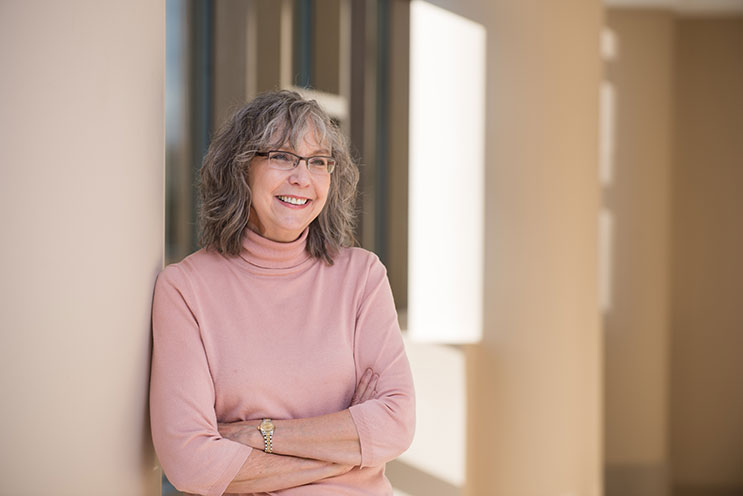Lymphoma
We offer the most advanced, personalized treatment available for Hodgkin’s, non-Hodgkin’s and Castleman’s disease.
Lymphoma is a category of cancers that develop in the lymphatic system. The lymphatic system includes the lymph nodes, spleen and bone marrow. It’s a vital part of the immune system that rids the body of toxins, waste and other unwanted materials. We treat it with an integrated team of hematologists (specialists who focus on disorders that affect the blood and related structures) and oncologists, who treat cancer.
While some cancers such as lung or breast cancer can spread to the lymph nodes, they are not lymphomas.
After our hematology-oncology team has diagnosed your specific type of lymphoma, they will walk you through your personalized lymphoma treatment options. This includes extensive support and education resources from diagnosis through survivorship.
Newly diagnosed?
Lymphoma symptoms
Lymphomas can have many different symptoms depending on where in the body they are located. Some common ones include:
- Enlarged lymph nodes
- Fatigue
- Fever
- Night sweats
- Unexplained weight loss
Types of lymphoma
The two main types of lymphoma differ based on the lymphocytes (types of white blood cells) involved:
- Hodgkin’s lymphoma: If your doctor detects the presence of large, abnormal cells called Reed-Sternberg cells, the diagnosis is Hodgkin's lymphoma.
- Non-Hodgkin’s lymphoma: The absence of these cells indicates that it’s non-Hodgkin’s lymphoma.
In addition, our hematology-oncology team treats Castleman’s disease (also known as giant lymph node hyperplasia and angiofollicular lymph node hyperplasia). This rare condition causes abnormal growth of lymph node cells. It’s not technically a form of cancer, but it acts like lymphoma, and people with the disease often develop lymphomas.

Personalized lymphoma treatment plan
After diagnosis, your cancer care team will discuss your options, including the benefits and side effects of each. Treatment will depend on the type of lymphoma, its stage, and your medical history and priorities. Your lymphoma treatment may include one or more of the following:
- Bone marrow transplant
- Chemotherapy
- Immunotherapy, including CAR T-cell therapy for diffuse large B-cell non-Hodgkin’s lymphoma
- Radiation therapy
Lymphoma treatments we helped develop
Thanks to our hematology-oncology team’s lymphoma clinical trials program, our patients have access to the most promising, innovative lymphoma treatments in the nation.
Our research has led to new therapies for lymphoma treatment, including:
- Monoclonal antibodies: Clinical trials we conducted were instrumental in the FDA’s approval of the first monoclonal antibody for relapsing, low-grade non-Hodgkin’s lymphoma. Monoclonal antibodies are laboratory-manufactured molecules that attach to specific defects in cancer cells. When they are used alone, they achieve remission in 50 percent of patients without any of the side effects associated with chemotherapy. We’re continuing our research in advanced monoclonal antibodies.
- Combination chemotherapy and growth factors: For lymphoma patients who are not candidates for monoclonal antibodies, other clinical trial therapies are available, such as combination chemotherapy and new growth factors—substances that help regulate cell growth and division.
- Bone marrow transplantation: This is a treatment option for patients who experience relapse of Hodgkin’s or non-Hodgkin’s lymphoma, or patients considered at high risk for relapse. We are one of only three centers in Michigan to offer both autologous bone marrow transplantation (where you receive your own stem cells) and allogeneic bone marrow transplantation (you receive stems cells from a donor).
.svg?iar=0&hash=F6049510E33E4E6D8196C26CCC0A64A4)

/hfh-logo-main--white.svg?iar=0&hash=ED491CBFADFB7670FAE94559C98D7798)